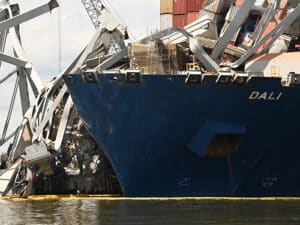
Cargill looks for 15% cut in shipping CO2 emissions by 2020
Written by Nick Blenkey
JUNE 19, 2018 — One of the world’s largest vessel charterers, agribusiness giant Cargill, has published its first corporate responsibility report specifically for its ocean transportation business.
The report, written in line with the Global Reporting Initiative, provides an update on progress for 2017. The company outlines its plans and activities to lead dry bulk shipping, one of the world’s oldest and most traditional industries, into a new era by making shipping safer, more efficient and sustainable.
Together with its stakeholders, Cargill completed a comprehensive materiality assessment for its operations in mid-2017. Using this assessment tool as a basis, the business set actions and targets to improve its operations in the areas of climate change and health; safety and well-being; ocean health and biodiversity; and inclusion and diversity.
“Cargill is taking a holistic approach to sustainable development and to our obligations as a responsible global citizen,” said Jan Dieleman, president of Cargill’s ocean transportation business.
Cargill reports some improvements across a number of performance measures, notably within its fleet composition and vessel efficiency. In 2017, Cargill’s ocean transportation business reduced its CO2 emissions by 5.7 percent and committed to achieving a 15 percent reduction by 2020. Cargill’s CO2 reduction is on a cargo-ton-mile basis and applies to its time-chartered fleet.
“We are relatively pleased with our fleet performance this year. We know vessel efficiency can vary considerably due to a host of external factors but the whole team at Cargill is committed to achieving a significant improvement in coming years,” said Dieleman.
The aspirations outlined by the ocean transportation business follow Cargill’s earlier announcement, which stated its desire to cut gross greenhouse gas emissions by 10 percent by 2020 across its global operations.
Dieleman also recognized the importance of the strategic partnerships which Cargill entered into in the latter part of 2017 with the Global Maritime Forum, the Maritime Anti-Corruption Network, the North American Environment Protection Association and the Women’s International Shipping and Trading Association.
“Sustainable shipping can only become a reality if the entire industry pulls in the same direction,” he said. “The hard work certainly lies ahead of us and we will embrace it.”
http://bit.ly/2K1gs1X





Leave a Reply
You must be logged in to post a comment.